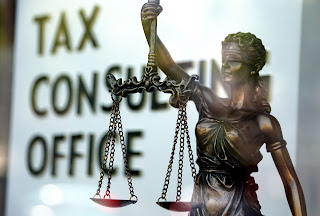Taxes are a fundamental aspect of any modern society, serving as the lifeblood that fuels essential public services and infrastructure. However, in recent years, there has been growing concern and debate surrounding the issue of why some wealthy individuals seemingly pay little to no taxes. This complex and contentious topic touches upon various aspects of taxation, including legal loopholes, tax avoidance strategies, and government policies. In this comprehensive blog post, we will delve into the factors contributing to this phenomenon and examine why it has become a prominent issue in today's world.
1. Taxation Basics
Before we explore the reasons behind wealthy individuals' lower tax payments, it is crucial to establish a foundational understanding of taxation. Taxes are typically levied on income, wealth, consumption, and various other financial transactions. Governments use tax revenue to finance public services, such as education, healthcare, infrastructure, and social welfare programs.
2. Legal Tax Avoidance vs. Illegal Tax Evasion
One of the key distinctions to make when discussing the tax strategies of wealthy individuals is the difference between legal tax avoidance and illegal tax evasion. Tax avoidance involves using legal methods to minimize one's tax liability, often taking advantage of deductions, credits, and loopholes in tax laws. In contrast, tax evasion is a criminal act that involves deliberately misrepresenting income, assets, or deductions to evade taxes.
3. Tax Codes and Loopholes
One reason why some wealthy individuals pay lower taxes is the complexity of the tax code itself. Tax codes are often intricate, with numerous deductions, credits, and exemptions that can be legally utilized to reduce tax liability. Wealthy individuals, often with the assistance of tax professionals, can navigate these complexities to their advantage.
4. Capital Gains Tax
A significant avenue for reducing tax liability is through capital gains tax. When wealthy individuals invest in assets such as stocks, real estate, or businesses, they may benefit from preferential tax rates on the profits generated from selling these assets. Lower capital gains tax rates can significantly reduce the overall tax burden for those who have substantial investments.
5. Offshore Tax Havens
Offshore tax havens, countries with favorable tax policies, have long been a topic of controversy. Wealthy individuals can park their assets and income in these jurisdictions to take advantage of lower or non-existent tax rates. While some countries have taken steps to combat tax evasion through offshore accounts, the practice remains prevalent.
6. Corporate Taxation
Wealthy individuals often have a stake in or own corporations, which can employ various tax strategies to reduce their tax liability. Multinational corporations, in particular, have been criticized for shifting profits to low-tax jurisdictions and using complex structures to minimize their overall tax burden.
7. Lobbying and Political Influence
Another factor contributing to the perception that wealthy individuals don't pay their fair share of taxes is their ability to influence tax policy through lobbying efforts and campaign contributions. This influence can lead to tax policies that favor the wealthy, including tax cuts for high-income earners and corporations.
8. Inequality and Wealth Disparities
The growing wealth gap in many countries has fueled concerns about fairness in the tax system. When a significant portion of the nation's wealth is concentrated in the hands of a few, it can lead to disparities in the tax burden. Some argue that progressive taxation, which taxes higher incomes at a higher rate, can help address this issue.
9. Tax Enforcement and Resources
Effective tax enforcement plays a crucial role in ensuring that all individuals, including the wealthy, pay their taxes as required by law. However, resource limitations, inadequate technology, and underfunded tax agencies can hinder the government's ability to enforce tax laws effectively.
10. Public Perception and Trust
The perception that wealthy individuals pay less in taxes than they should can erode public trust in the tax system and government institutions. This lack of trust can lead to social unrest and calls for tax reform.
11. Calls for Tax Reform
In response to the issues surrounding wealthy individuals' tax payments, there have been calls for tax reform in many countries. These reforms often focus on closing tax loopholes, increasing tax rates on high earners, and improving tax enforcement.
The issue of wealthy individuals paying lower taxes is a multifaceted and contentious one. While there are legal ways for the wealthy to reduce their tax liability, the debate ultimately centers on questions of fairness, equality, and the role of government in addressing these concerns. As discussions about tax reform continue, finding a balance that ensures a fair and equitable tax system for all remains a top priority.
In conclusion, the reasons behind some wealthy individuals paying little to no taxes are complex and interrelated, involving tax codes, loopholes, corporate structures, offshore accounts, lobbying efforts, and more. Addressing this issue requires a comprehensive approach that considers not only legal reforms but also broader questions of societal fairness and trust in the tax system.



.jpg)


No comments:
Post a Comment